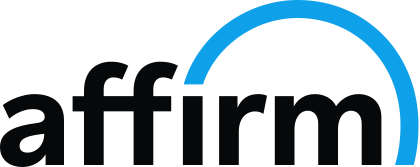 If anyone can use job search tips in 2024, it is recent graduates, who face several hurdles as they enter the market.
If anyone can use job search tips in 2024, it is recent graduates, who face several hurdles as they enter the market.
As of 2023, the average time it took for new grads to land a job had increased from 5.5 months to 6 months. Hiring for the Class of 2024 is projected to dip by 1.9%, according to NACE’s Job Outlook 2024 survey. Consulting firms are delaying start dates by up to a year, due to industry-wide slowdowns and companies such as Google, Amazon, Wayfair, UPS, and IBM are scaling back on hiring and announcing layoffs.
Make no mistake: it’s rough out there!
Despite the challenges, there are also opportunities for recent graduates. The US economy added 353,000 jobs in January 2024, outpacing 2023’s average and LinkedIn has seen a 21% increase in job postings that emphasize skills and responsibilities over qualifications. Three-quarters of employers say the job market is favorable for 2024 graduates, and 43.3% of employers plan to increase salaries for new employees with a bachelor’s degree.
These trends indicate that with targeted efforts, recent graduates can find meaningful employment, provided they take advantage of some job search tips.
Customizing Your Application Materials
One of the most job search tips to help new grads stand out in a crowded job market is to tailor your cover letter and resume for each position. An obvious standard template can hinder an otherwise qualified application.
- Cover Letter: Highlight how your skills and experiences align with the specific job requirements.
- Resume: Use keywords from the job posting and showcase relevant experiences. If having trouble making the connection, that is what professional resume writers do every day, all day. So consider making the investment.
- Online Portfolio: One of the more popular job search tips people are taking advantage of is creating an online portfolio or website to display samples of their work, which can be linked to in your application materials.
Branding Yourself
Curating your online presence is crucial at every point in your career. 70% of companies use social media screening when hiring, and 57% don’t hire candidates because of what they found in their profiles.
- LinkedIn Profile: Dress up your LinkedIn profile with a business-appropriate photo and a compelling summary. Also, post 2 to 3 times per week. This can help to establish you as knowledgeable in your field. Who knows? You may soon be considered a thought leader!
- Social Media: Curate your social media to reflect your professionalism in your targeted industry. Have some edgy and polarizing stuff out there? SCRUB IT! Trust me, you think your privacy settings will protect you, but multimillion-dollar companies have their ways around that.
Network Your Way to Success
This is among the oldest of job search tips, but nonetheless still the most important. Building and leveraging your network is a significant job search impact tool, regardless of how much technology integrates itself into the game. So, how can you build that network?
- Online Networking: Make strategic connections with professionals on LinkedIn and participate in relevant groups. LinkedIn is where 21st century technology meets networking to open you up to crafting a tailored network that fits your career development needs.
- In-Person Networking: Of course, nothing beats “pressing the flesh.” (that is a handshake to those of you unaware). Look for opportunities to attend industry events, job fairs, and alumni gatherings. Prepare a digital business card that transfers via NFC and build out a single-page networking resume to go along with your standard version. Be ready to get as many contacts as you can that can help lend a hand – now or in the future.
- Informational Interviews: This is one of the often-overlooked job search tools. For those of us who do not know, an informational interview is a strategic conversation with a professional in your desired field to gain insights and advice about their career path and industry. It represents an opportunity to expand your network, understand job market trends, and gather firsthand information about specific roles or companies. Conducting informational interviews can provide valuable guidance and clarity as you navigate your own career journey, helping you make informed decisions about your professional future.
Practice your Interviewing Skills
Practicing interview skills enhances your ability to communicate confidently and clearly, making a strong impression on potential employers. It allows you to refine your responses to common questions, ensuring you can effectively highlight your strengths and experiences. Regular interview practice also helps you manage stress and improve your overall performance, increasing your chances of securing job offers.
- Mock Interviewing: Mock interviews provide a realistic simulation of actual interviews, allowing you to practice and refine your responses in a low-stakes environment. They offer valuable feedback on your performance, helping you identify areas for improvement and build confidence. Regular participation in mock interviews can significantly enhance your interview skills, making you better prepared for the real thing and increasing your chances of success. Practice with friends, family, or career services entities. But practice! All too many applicants get into the door and bomb at this point.
- Common Questions: Preparing for common interview questions equips you with well-thought-out responses, enabling you to articulate your skills and experiences effectively. It helps you anticipate and confidently address potential concerns or challenges that may arise during the interview. This preparation enhances your overall performance, making you more compelling and polished in the eyes of potential employers.
- Research: Researching the company before an interview demonstrates your genuine interest and commitment, setting you apart from other candidates. It allows you to tailor your responses to align with the company’s values, culture, and goals, making your answers more relevant and impactful. This preparation also enables you to ask informed questions, showcasing your proactive approach and thorough understanding of the organization.
(Part 2 coming soon!)
















